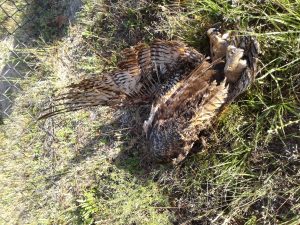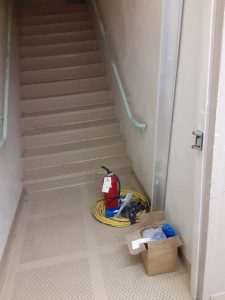The electricity at a hospital is critical to keeping the doors open. Sometimes, the reliability of the power grid is literally life or death. Imagine if your loved one was in on the operating table and the power was lost. That’s not a good place to be! The patients in the ICU or NICU on breathing apparatus also need power to sustain life. As a response to the scenario of lost powers, hospitals have emergency power generators. The generators don’t typically power the whole facility, but instead, provide adequate power to the most important and critical areas. The generators are tied to transfer switches that as soon as normal power is lost, activate the generator to restore power.
Reasons for the lost power are limitless and varied. Storms, malfunctioning equipment, car accidents, lightning, wind, wildfires, and flooding have all caused power to be lost at healthcare facilities. Oh, and animals too can cause outages. We recently have had two animal induced outages in a short amount of time.

The first outage was from the critter that came to be known as “Rocky the Flying Squirrel”. Rocky suffered from an untimely demise due to biting an electrical line. I was in a meeting when it happened, ironically discussing utility outages for a construction project. We adjourned the meeting and set about restoring power. The electrical utility was contacted, and in about 20 minutes normal power was restored and the generators were turned off.

The second outage was from a Great Horned Owl that spread its wings while perching on an electrical pole early one morning. I made it to work shortly after it occurred. It’s always sad to see one of those majestic birds suffer an early death. Somebody at Hogwarts didn’t get their mail that day.
So what can we learn from this? Two quite apparent lessons are 1). Don’t chew on power lines. 2). Don’t stand on power poles. But the advanced lessons are just as relevant to facility managers, if not more so. 1). How reliable is your power provider? 2). Do you have a plan in place for unplanned events that affect your power supply? If you’ve got a plan, you can quickly and easily set things back and continue with your day. Make a plan and follow it. If your plan is that nothing unexpected or unplanned will happen, you don’t have a plan. You need to show some leadership and take charge of planning and looking ahead and establishing a response for when unplanned utility outages happen.


